Weathering the Storm: Protecting Your HVAC System During Hurricanes
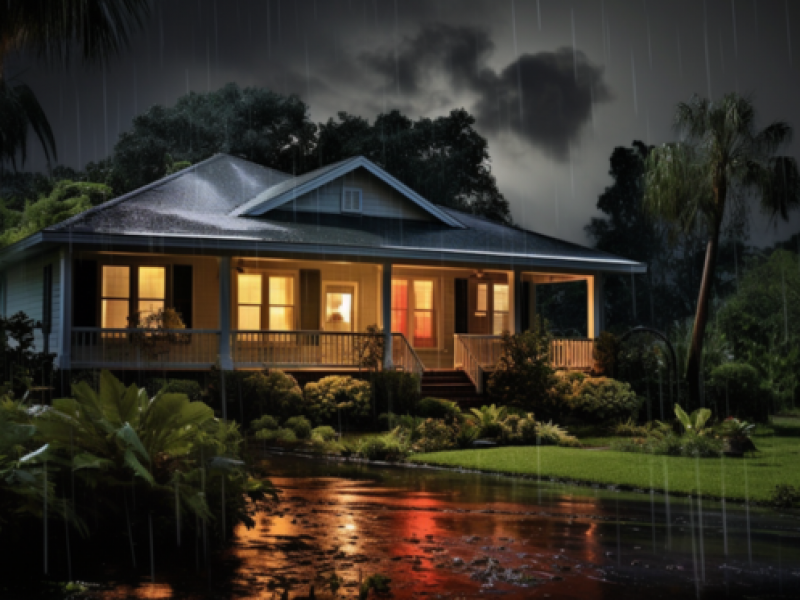
Table of Contents
This article provides an in-depth look at how to protect HVAC systems, with topics ranging from understanding the inherent vulnerabilities to implementing safety measures and investing in durable solutions. By first understanding the potential threats to HVAC systems, such as surges, storms and debris, one can then take steps to safeguard their system’s electronics, bolster against wind and debris damage, assess safety measures post-hurricane, and invest in resilient solutions.
Surge Protections: Safeguarding Your HVAC System’s Electronics
Surge protection is an important safeguard for your HVAC system’s electronics. It ensures that the vital parts of your home’s heating, ventilation, and air conditioning system are defended from electric current fluctuations known as “surges.” These surges can damage your system’s wiring, resulting in costly repairs for the homeowner. Moreover, an HVAC system with unprotected electronics might experience difficulties such as reduced performance, increased utility costs, and even a shortened lifespan.
On the other hand, properly installed surge protection offers added protection for your system and wiring, by diverting excess electricity away from the HVAC system’s sensitive components. Furthermore, a surge protector is relatively inexpensive and easy to install. Homeowners can choose a “whole house” option to protect their system from any electrical problems, or select specific region surge protectors to guard a just one room or component.
In addition to surge protection, most commercial and residential HVAC systems benefit from a variety of other protective strategies. For instance, maintaining proper airflow within your home is essential, as blocked vents can lead to low airflow and negatively impact the system’s performance, leading to more strain on its parts. Similarly, regularly scheduled maintenance can help reduce wear on the system’s parts, while also proactively catching any potential problems that may arise.
Combining surge protection with regular HVAC maintenance is important in order to extend the efficiency and lifetime of your system. Careful installation, maintenance, and monitoring of surge protection will help ensure your HVAC system is functioning correctly. Subsequently, it will provide you with maximum performance, cost-effectiveness, and a lengthy lifetime.
Secure Your HVAC System: Bolstering Against Wind and Debris
When protecting your HVAC system from wind and debris, there are a few steps that you can take to ensure it remains secure. First off, invest in secure shutters or screens for your outside HVAC units. These can be hand-made, store-bought, or have them custom-made to ensure an ideal fit for your HVAC. However, there are also methods of extra protection you can implement.
You can also inspect your grounds for any debris that may have collected. Ensuring that it is kept clear of twigs, leaves, and debris can help to reduce the risk of dust and dirt getting into your HVAC system. If you have trees or bushes in close proximity to your HVAC you should regularly trim the branches to prevent any rubbing against the system and any leaves collecting near it.
In addition, the eaves of your home should also be durable enough as not to get battered by wind or debris. Steel and solid boards are commonly used in these cases, as they are durable against external weather conditions. One last point is to get your HVAC system checked regularly, as well as having it serviced at least once year. This way, any debris or corrosion can be averted before it worsens. Consequently, all of these precautionary measures mentioned can increase the longevity of your HVAC system.
Post-Hurricane HVAC Assessment and Safety Measures
In the aftermath of a hurricane, it is essential to assess the safety of HVAC systems before re-entering a building. Moreover, structural damage to buildings can cause HVAC systems to malfunction, so they should be thoroughly evaluated before regular use. A technician should examine all mechanical components of the system such as heat exchangers and ducting. It is also essential to check for visible signs of moisture intrusion such as corrosion and flooded components. Furthermore, debris from the hurricane can damage the system and cause it to fail, so it is important to inspect the system for clogs, blockage, or other potential issues.
Electrical and control wiring should also be inspected to ensure it has not been damaged. In addition, wiring should be checked for stray electrical current and shorts, due to the chance of electric shock. Similarly, compact fluorescent lamps should be examined for signs of fatigue or distress, since such lamps may be contaminated by water intrusion during a hurricane. In contrast, the ductwork should also be checked for any water or debris contamination as well as any blockages in the supply, return, or exhaust ducts.
It is important to check the air filters and clean them as necessary, as this will improve the flow of air and prevent the spread of mold. Furthermore, all gas lines should be inspected for leaks and, if necessary, replaced. It is also essential to check for proper ventilation and check all exhaust fans for proper operation. Moreover, all variably controlled dampers must be checked for proper operation to prevent air and moisture intrusions. As a result, all HVAC systems should be tested for proper operation.
Consequently, any issues that are found must be repaired immediately to prevent any further harm. It is also essential to clean any water or debris from the system and disinfect any areas affected by moisture. After all necessary repairs and cleaning have been done, the HVAC system should be thoroughly tested for proper operation. Lastly, the homeowner should consult with a professional engineer if there is any doubt about the safety of the system. By taking these safety measures, homeowners can ensure that their HVAC system is safe and functioning properly.
Investing in Durable HVAC Solutions
Investing in durable HVAC solutions is a wise decision for homeowners and commercial entities alike. In addition to providing a greater degree of efficient operation and comfort, these systems can also help to maintain optimal air quality without wasting energy or resources. However, before making any decision, it is important to consider the different options available.
Heat pumps are one of the most popular varieties of HVAC solutions because of their efficiency and their ability to maintain a stable temperature throughout the home. Heat pumps use electric energy to draw heat from the air outside, making them efficient to run and cost-effective. In addition, they can help keep air quality at a higher level, since they do not depend on the circulation of air. Furthermore, they can be installed quickly and easily, and they are also very affordable.
Finally, high-efficiency HVAC systems are another option for those looking for the ultimate in comfort and efficiency. These systems are designed to operate at their highest efficiency ratings, meaning they can deliver the exact temperature the user desires without the need for excessive energy usage. Consequently, these systems are a great option for those looking to reduce their environmental impact while still providing an efficient and comfortable environment.
When it comes to investing in a durable HVAC solution, there are several different options to choose from. Heat pumps, furnaces, and high-efficiency systems are all viable options, and each provide a range of different benefits and features. Ultimately, the choice comes down to the specific needs and budget of the homeowner or commercial entity. Regardless of the decision, though, investing in a durable HVAC solution is sure to pay off in the long run.
Keep Your HVAC System Going With Air Docs
It is clear that many steps must be taken to protect and secure HVAC systems and keep them running effectively in the face of a hurricane or natural disaster. First and foremost, it is essential to invest in a reliable surge protection system as well as durable and weather-resistant HVAC components that are designed to withstand strong winds and debris. Proper maintenance, inspections, and testing should be conducted both before and after a storm hits in order to inspect for mechanical damage and monitor the performance of the system. Additionally, safety measures such as proper shutoff of fuel, electrical, and gas systems should be taken in order to prevent fires, explosions, and other threats. With all of these steps implemented, HVAC systems can remain safe and secure for many years to come. Call Air Docs to help find your home’s HVAC solution today!
Frequently Asked Questions
What should I do with my HVAC system when there’s a power outage during a storm?
If power goes out during a storm, the first thing you should do is check to make sure your HVAC system is powered off and that all electrical breakers have been switched off. This will prevent any possible damage to your system that may occur if the power comes back on and the system turns back on suddenly. If you have a furnace, it should also be shut off to prevent a potential fire hazard. You should also close all windows and doors to minimize the loss of heat or cool air, if applicable. Lastly, you should contact your HVAC technician to check the system and make sure no components were damaged.
After the hurricane
After the hurricane, the best thing to do is to begin the process of clean-up and recovery. Be sure to document all destruction or damage that has occurred and contact your insurance company as soon as possible. Additionally, look out for any resources offered to help with any expenses incurred due to the storm. Finally, take necessary steps to restore your home or business to its pre-hurricane condition.
I see water around my indoor HVAC unit. What should I do?
If you see water around your indoor HVAC unit, you should immediately contact a professional that can investigate and repair the issue. The water around your HVAC unit may indicate a leak in your system that needs to be identified and repaired. A professional can also identify underlying problems that could be causing the leak.
How often should I have my HVAC system checked after extreme weather events?
It is usually recommended to have your HVAC system checked after extreme weather events, such as after a severe storm. This is to ensure that the system is running properly and to check for any damage that may have occurred due to the weather event. It is generally recommended to have the system checked at least once a year for HVAC maintenance, however after an extreme weather event it is best to get a professional to look over the system as soon as possible.
Other Blogs You May Be Interested In
Categories

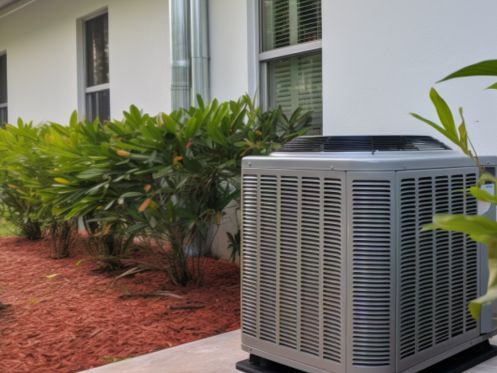


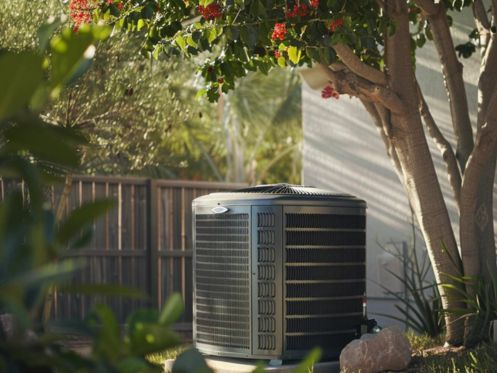

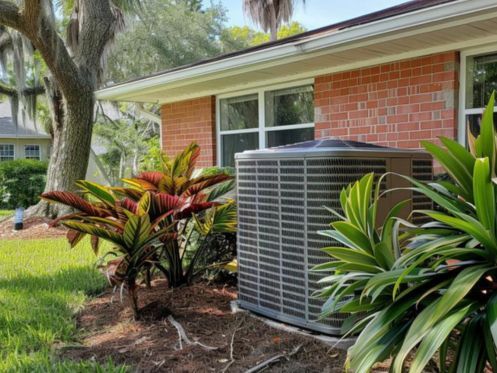
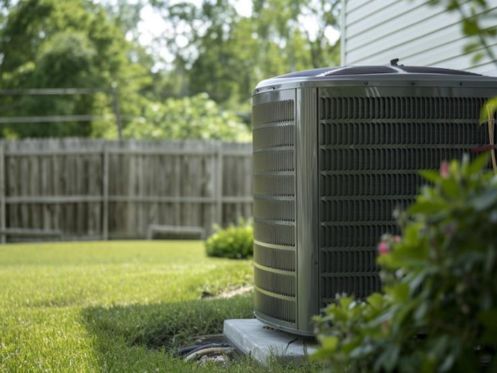
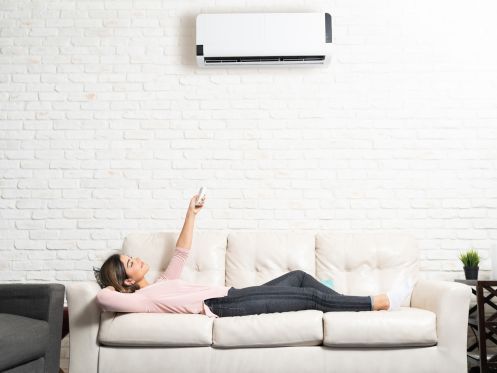
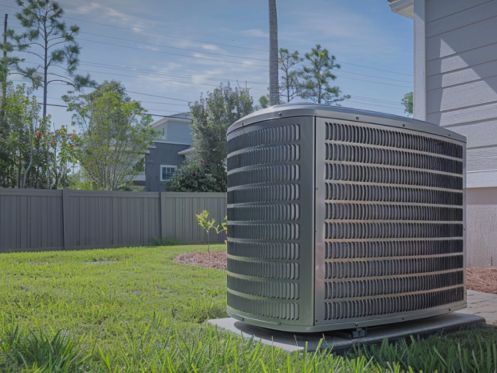
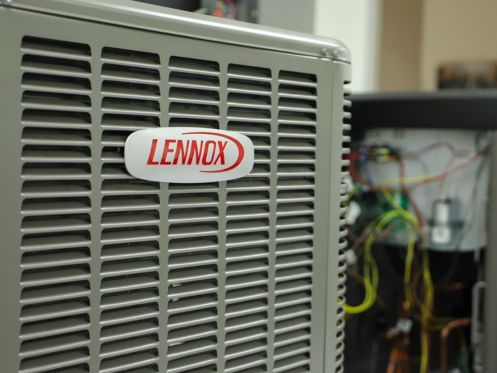

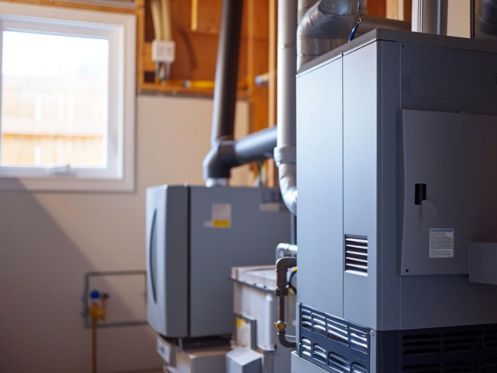
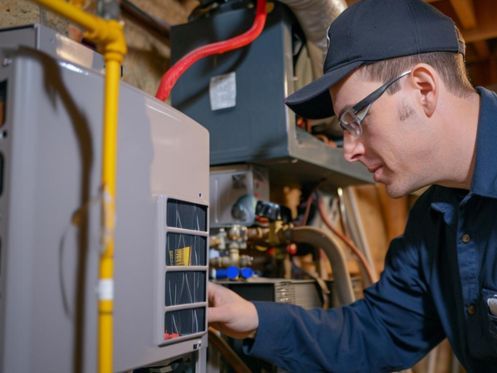
Leave a Reply